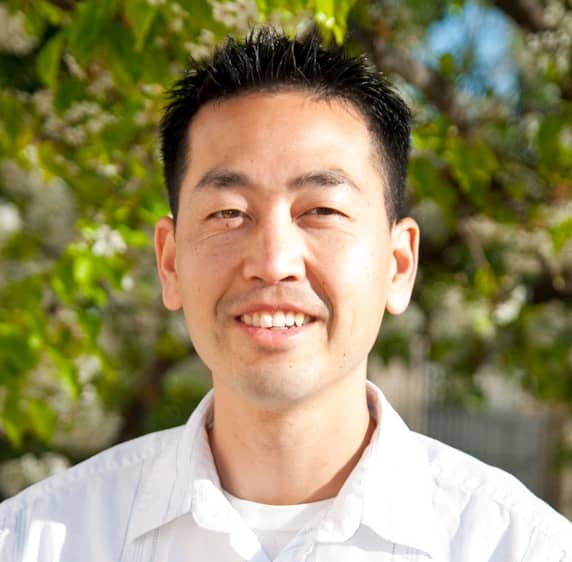
Jesus always said, “No,” to people-pleasing. He never played up the crowd or told them simply what they sought to hear because he came not as a man to seek the approval of man. Instead, he perceived the people’s hearts: “Jesus knew from the beginning who those were who did not believe, and who it was who would betray him” (John 6:64b). He knew that many would doubt his deity and that one of his own would turn against him (see vv. 70-71). He knew that all were sinners in need of a Savior, so he did not try to please them. He understood the natural state of man as sinful, petty, and full of anxiety (2:24-25). Yet when Jesus looked at people, he always saw them without prejudice. As he warned the crowd, “Do not judge by appearances, but judge with right judgment” (7:24; see Matthew 22:16). Thus, in the Gospel accounts, we observe how our sinless Savior broke down barriers to engage at the level of the heart.
Religious Barriers
Jesus broke down religious barriers by clearing the temple of moneychangers who hindered Gentile worship (John 2:13-17; Mark 11:15-19). He told the head honcho Pharisee, “Don’t think you’re on your way to heaven, Nicodemus. Despite what you believe, you’re still a sinner who must be born again!” (John 3:1-16). Jesus truthfully told a Samaritan woman to repent of both sexual sin and her misguided worship (John 4:1-45). He then broke Levitical protocol to heal a crippled man on the Sabbath (John 5:1-47; Mark 3:1-6). Jesus did not seek to please the religious establishment. Instead, he often angered them.
Application Insight: Christians often practice traditions based more on human preference than biblical truth. Yet this people-pleasing elevates man-made rules above God’s authoritative Word. So carefully evaluate your religious culture according to the Bible. Learn to keep peace on matters of preference, then challenge any human traditions which contradict Scripture.
Ethnic and Socioeconomic Barriers
Jesus also broke down ethnic and socioeconomic barriers throughout his ministry. To the horror of the Jews, he healed the child of a Syrophoenician woman (Matthew 15:21-28; Mark 7:24-30) and the servant of a Roman centurion (Matthew 8:5-13; Luke 7:1-10). Jesus often ate with tax collectors and sinners (Matthew 9:9-13; Mark 2:15-17) though the religious elite criticized these dregs of society (Matthew 11:19; Luke 7:34). He befriended wealthy Zacchaeus (Luke 19:1-10), but also commended a dirt-poor widow who slipped two small coins into the offering (Mark 12:43b-44). Jesus looked past rich and poor; Jew and Gentile; accepted and outcast to see that all were sinners in need of a Savior: “Unless you repent, you will all likewise perish” (Luke 13:5; see vv. 1-4).
Application Insight: Examine your own prejudice against those from different ethnic or socioeconomic backgrounds. Do you enjoy diversity amongst your friends and within your church community? What goes through your mind when you meet someone different than you? Do you pray regularly for ministries in other parts of the world or leaders from different socioeconomic backgrounds?
Age Barriers
Jesus also broke down age barriers, for he valued life at every stage and ministered to both old and young. Shortly after his miraculous birth, the elderly Simeon and aged Anna were blessed to hold the Christ child and pray over him (Luke 2:25-38). Jesus honored his parents and the elders in his society, but he also loved the little children and refused to turn them away. He himself knew that growing up was a natural part of life (vv. 40, 52). So one time, people “were bringing children to him that he might touch them, and the disciples rebuked them. But when Jesus saw it, he was indignant and said to them, ‘Let the children come to me; do not hinder them, for to such belongs the kingdom of God. Truly, I say to you, whoever does not receive the kingdom of God like a child shall not enter it.’ And he took them in his arms and blessed them, laying his hands on them” (Mark 10:13-16; see Matthew 18:1-6; 19:13-15).
Application Insight: Do you despise or neglect those who seem either too young or too old for your company? Do you ever show disdain or withhold respect solely on the basis of age? Consider that every person created by God is precious in his sight and will also live for eternity either in heaven or in hell. Then learn to see people with the eyes of Jesus instead of simply evaluating their usefulness to you or to society.
Gender Barriers
Jesus also broke down gender barriers in a highly patriarchal society. Despite choosing twelve men to be his disciples, he welcomed women to serve with him in ministry (Luke 8:1-3). Many of these women remained faithful even to the cross and to his empty tomb (Mark 15:40-41, 47; 16:1-8). One time, Jesus also accepted the worship of a woman with a sinful past:
And behold, a woman of the city, who was a sinner, when she learned that he was reclining at table in the Pharisee's house, brought an alabaster flask of ointment, and standing behind him at his feet, weeping, she began to wet his feet with her tears and wiped them with the hair of her head and kissed his feet and anointed them with the ointment (Luke 7:37-38).
Jesus didn’t worry about what the Pharisees might say because he cared more about people’s hearts than he cared about optics. He willingly received their criticism and spurned the approval of man: “Now when the Pharisee who had invited him saw this, he said to himself, ‘If this man were a prophet, he would have known who and what sort of woman this is who is touching him, for she is a sinner’” (v. 39). Jesus knew, of course, that this woman was a sinner in need of grace, for he said to her, “Your faith has saved you; go in peace” (v. 50). Yet he also knew that the Pharisee was a sinner as he rebuked the man for his lack of love (vv. 40-46). Jesus looked past gender because he knew that both male and female were sinners in need of a Savior.
Application Insight: In Christ’s church, men and women are equal in nature despite our unique ways of reflecting God’s image (Galatians 3:28). Therefore, relate to both brothers and sisters in Christ as members in the same family, “heirs of God and fellow heirs with Christ” (Romans 8:17). Then seek to “outdo one another in showing honor” (12:10).
Health Barriers
Jesus also broke down health barriers when he physically touched lepers whom society considered unclean (Matthew 8:1-4; Luke 5:11-14). He healed a woman who had been disabled for eighteen years (Luke 13:10-17) and allowed another with a discharge of blood to grab hold of his garment (Mark 5:25-34). Everyone else avoided such pariahs out of fear, yet Jesus loved them enough to heal them. He had compassion on those who suffered the effects of life in a fallen world (Matthew 9:35-36).
Application Insight: Do not fear the disabled or chronically ill because you do not know how to care for them or because you fear the sacrifice of your time and resources. Such people need spiritual care like everyone else and often have greater physical and emotional needs because of their suffering. Being like Jesus means reaching out to those who are hurting.
Sin Barriers
Most importantly, Jesus broke down the sin barrier which was the foundational reason for all the other barriers (Genesis 3). For example, when Jesus healed a paralytic, he also said to him, “Son, your sins are forgiven” (Mark 2:1-5).
Now some of the scribes were sitting there, questioning in their hearts, “Why does this man speak like that? He is blaspheming! Who can forgive sins but God alone?” And immediately Jesus, perceiving in his spirit that they thus questioned within themselves, said to them, “Why do you question these things in your hearts? Which is easier, to say to the paralytic, ‘Your sins are forgiven,’ or to say, ‘Rise, take up your bed and walk’? But that you may know that the Son of Man has authority on earth to forgive sins”—he said to the paralytic—“I say to you, rise, pick up your bed, and go home.” And he rose and immediately picked up his bed and went out before them all, so that they were all amazed and glorified God, saying, “We never saw anything like this!” (vv. 6-12).
The people were amazed by the physical healing, but the leaders were even more amazed by his claim to forgive sin. Yet as Jesus peered into their hearts, he saw how the scribes still doubted his divinity and the crowds cared more about his miracles than his message. Still, Jesus was willing to be misunderstood, so he could minister to both sufferers and sinners.
Our Lord spoke truth regardless of what other people thought. He never took a poll to test the waters or favored one group above another. He knew they all needed God’s truth spoken with compassion (John 1:14) as sinners in need of him to be their Savior (3:16). Thus, Jesus neither minimized people’s sin nor maximized their power in society. He did not try to please the rich or placate the religious. He refused to overlook the poor and downtrodden. He was not a people-pleaser, but a people-lover (15:13).
Application Insight: When you finally stop trying to please others, then you are free to love them. You will learn to pray for your enemies when you no longer fear them (Matthew 5:45). You will serve your neighbors more when you stop seeking their approval (22:39; e.g., Luke 10:25-37). You will tenderly care for your children when you recognize that “folly is bound up in [their hearts]” (Proverbs 22:15a) and that children, just like their parents, are sinners in need of a Savior. You will embrace your fellow believers as you consider their interests before your own (Galatians 6:10; Ephesians 4:13; see John 17:11, 20-21, 23, 26). When you need people less, you will learn to love them more.
Who will reign as king in each of our lives? Our children? Our spouse? Our boss? Our friends? Our religious or political leaders? If we have appointed any another person as king, then we will worship and serve that king by trying to please them. Instead, Christ Jesus alone must reign as King—the only Man worthy of our worship. The first principle for saying “No” to people-pleasing is to recognize that all people are, by nature, sinners in need of a Savior.
4/28/2022 7:57:36 PM





